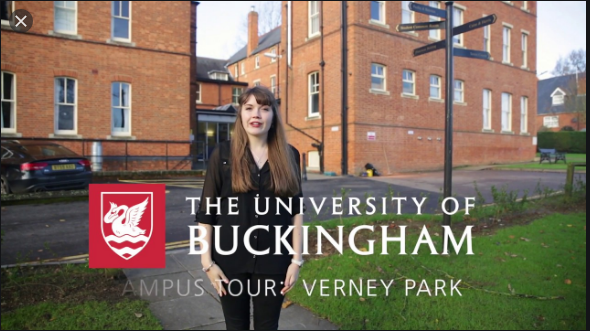MA 20th-Century British History by Research
This London-based programme enables students to examine Britain’s history in the 20th century, focusing on the period from the start of the First World War in 1914 to Margaret Thatcher’s resignation in 1990. It is led by Simon Heffer, Professor of Modern British History in the University and a leading authority on the period.
The course includes a series of seminars (see below), given by a range of eminent guest speakers, to supplement students’ private research. These will provide a broad chronological survey of the period and an introduction to major themes in the political and social history of 20th century Britain. The seminars will take place at the elegant Reform Club in Pall Mall, and supervisory meetings will be held at the Humanities Research Institute offices at 51 Gower Street in Bloomsbury.
The programme’s major concentration will be on politics and society, but there will be a subsidiary focus on cultural history and historiography. Guest speakers will include the contemporary historians Sir David Cannadine, Lord Hennessy, David Kynaston and Michael Bentley.
Assessment is via a dissertation of approximately 25,000 words on a topic of the student’s choosing, which is completed under the guidance of a supervisor and submitted at the end of the academic year.
2020/2021 seminar programme
Because of delays caused by the Covid-19 crisis the seminar programme will run this academic year from January to May: as in previous years, there will still be 10 seminars addressed by leading historians, covering the period from 1914 to 1990 and other specialist topics. Speakers in the past have included Sir David Cannadine (on the decline of the British Empire), Professor Lord Hennessy (on the immediate post-war period), Professor David Dilks (on the 1930s), Dr David Kynaston (on the 1950s), Professor Michael Bentley (on historiography), Professor Simon Heffer (on the Great War) and Dr Robin Harris (on Thatcherism). It is expected most or all of these speakers will return in 2020/2021.
The academic year will begin as normal in September and Professor Heffer, as course director, will be available to all students during the autumn to discuss dissertation topics and independent research so that work can begin before the seminar programme gets under way. A full bibliography will be issued to all students in September so that the autumn can also be used for essential background reading.
Campus Information
London
Intakes
- Oct
Application Processing Time in Days: 15
Minimum English Language Requirements
| English Level Description | IELTS (1.0 -9.0) | TOEFL IBT (0-120) | TOEFL CBT (0-300) | PTE (10-90) | |
|---|---|---|---|---|---|
| Expert | 9 | 120 | 297-300 | 86-90 | |
| Very Good | 8.5 | 115-119 | 280-293 | 83-86 | |
| Very Good | 8 | 110-114 | 270-280 | 79-83 | |
| Good | 7.5 | 102-109 | 253-267 | 73-79 | |
| Good | 7 | 94-101 | 240-253 | 65-73 | |
| Competent | 6.5 | 79-93 | 213-233 | 58-65 | |
| Competent | 6 | 60-78 | 170-210 | 50-58 | |
| Modest | 5.5 | 46-59 | 133-210 | 43-50 | |
| Modest | 5 | 35-45 | 107-133 | 36-43 | |
| Limited | 4 | 32-34 | 97-103 | 30-36 | |
| Extremely Limited | < 4 | < 31 | < 93 | < 30 |
Job Opportunity Potential
The University’s Course Directors, students’ supervisors, and the Research Officer and Tutor for Graduate Students are available to discuss students’ post-graduation plans and how they may utilise most effectively the skills acquired during their studies.
PSW Opportunity
2 years of PSW available after completion of Degree program
Admission Requirement / Eligibility Criteria
The minimum entry level required for this course is as follows:
- a first or upper second-class honours degree from a recognised university or,
- a recognised professional qualification with relevant work experience.
In cases where candidates are applying on the basis of work experience, they may be asked to complete a short written assignment and/or attend an interview as part of the applications process.
Postgraduate entry requirements
In order to study at postgraduate level (Master’s degree), you will normally need to have attained:
- A Bachelor’s degree from a recognised higher education institution, with Second Class/Division (50-64%) equivalent to a British Bachelor’s (Honours) degree, with a minimum of a 2:2, depending on school of study.
For More Information Please Connect Our PSA Counselor
- Course Type: Full Time
- Course Level: Masters/PG Degree
- Duration: 01 Year
-
Total Tuition Fee:
15435 GBP
Annual Cost of Living: 9207 GBP
Application Fee: N/A
Similar Programs
- MA United Nations and Diplomatic Studies at University of Buckingham
- MA Tudor History by Research at University of Buckingham
- MA History of Art: Renaissance to Modernism by Research at University of Buckingham
- MA The English Country House 1485-1945 by Research at University of Buckingham
- MA The Art Market and the History of Collecting by Research at University of Buckingham
- MA Modern War Studies and Contemporary Military History at University of Buckingham

